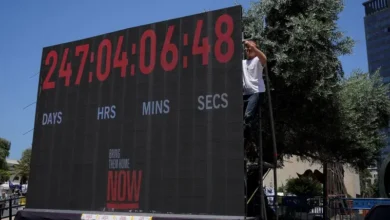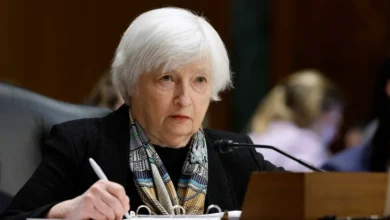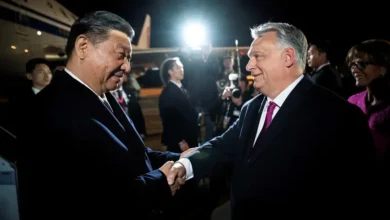Allure of the Olympics and a raging cost-benefit debate

For the next 17 days, the world will be captivated by the thrilling spectacle of athleticism, ambition, pride, patriotism, and celebrations as the once-in-a-four-year event, the 2024 Paris Olympics, returns to the French capital after 100 years.
More than 10,000 athletes from across 206 countries are participating in the mega sporting event, with millions of spectators expected to converge on Paris.
The opening ceremony, which went on for more than three hours and mostly featured people getting drenched in the quintessentially Parisian weather, could cost close to $50 million. The entire expenses for the 2024 Paris Olympics is estimated to be just under $10 billion, according to the Council on Foreign Relations (CFR), which appears to be less than the costs incurred by previous host cities.

It will be the first time since the Sydney 2000 Olympics that the final expenses will be under $10 billion.
Every Olympics since 1960 has had a budget overrun, at an average of 172 percent, according to a study conducted by the University of Oxford, which also notes that the average sports-related cost of hosting the Olympics in the modern era is $12 billion, and non-sports-related costs are typically several times that figure.
In 2013, when Tokyo was given the Games by the International Olympic Committee (IOC), Japan said it would cost around $7.5 billion.
‘Many, many challenges’
The Tokyo 2020 Games had to be postponed due to the COVID-19 pandemic. Both the IOC and Tokyo 2020 organizers highlighted that postponing the Olympics, which had a budget of $12.6 billion (1.35 trillion Yen), came with “many, many challenges.”
Its final cost came to $13 billion (1.42 trillion Yen), according to Japanese auditors, double the original estimate.
The bid for hosting the Olympics alone sets cities back by about $20 million and while the bidding process takes two years, most cities can exhaust a decade working on their bids — from the moment it is initiated to the time the votes are counted and results are announced by IOC.
Of course, bidding costs do not compare to the exorbitant bills that come with hosting the Games themselves. Los Angeles only recently finished paying off their budget-breaking 1984 Olympics; Montreal is still in debt for its 1976 Games (and to rub salt in the wound, Canada is the only host country to have failed to win a single gold medal in an Olympics staged by it).
London Olympics managers have admitted their 2012 costs increased 10 times over their initial projections, leaving taxpayers $16 billion in the red.
Cutting corners
To date, the Rio 2016 Olympics remains the most expensive summer Games ever recorded with a staggering 352 percent cost overrun.
The official cost estimate of the Rio Olympics was $12 billion. The final tally exceeded $20 billion for Brazil, the first South American country to host the Olympics with the city of Rio alone shouldering at least $13 billion. Rio cut spending on healthcare and education; the police went unpaid for weeks during the run-up to show of shows.
Host cities are often saddled with such high debts and costly infrastructure maintenance long after the competitors and spectators return home.
So the moot point is: If it’s so expensive, why host the Games?
IOC has stated that hosting the Olympic Games brings significant economic benefits, and claims that the benefits “far outweigh the Games-related investments.”
It argues that the daunting expenses are mitigated by tourist revenues and an increase in local employment, with the host city gaining global prestige. However, in reality, the host cities see little changes in real terms, even as their taxpayers are left settling the debt for years to come.
Another major concern highlighted by the CFR in the economics of hosting the Games is that when civic infrastructure developments are undertaken in preparation for the Olympics, their benefits remain limited to a single metropolitan center.
Since the IOC favors prosperous “global” centers, improvements in public transport, roads, and communication lines are concentrated in places that are already equipped with world-class infrastructures. As a result, the minor cities never get any capital injection.
The extensive demands of Olympic sports include aquatic complexes, equestrian circuits, shooting ranges, beach volleyball courts, and a quintessential 80,000-seat athletic stadium intended for a brief influx of athletes around the world for 17 days.
These complexes typically fall into disuse once the Olympic fever wanes. Maintenance of such vacant complexes then becomes a challenge that the city and its economy have to grapple with for decades to come.

Paris 2024 – ‘Games Wide Open!’
The theme for the Paris 2024 Olympics is ‘Games Wide Open,’ and half of the participating athletes are women – a feat achieved for the first time since the inception of the Olympics in 1896.
While this ‘feel good’ factor of gender equality is indeed commendable, questions still linger over the logistics surrounding the Games, chief among which is commute.
The arson attack on France’s high-speed rail network hours before the opening ceremony left hundreds stranded at stations and heightened security concerns.
Limited fan attendance would impact the money coming in, as ticket sales is the main source of income for the Games.
Many economists argue that one alternative option is to designate a permanent host city, while some others believe extending the duration of the Games could be an effective workaround so that local businesses would enjoy the benefits of extra spending and increased visitor numbers.
Others suggest scrapping of Paris 2024, and Los Angeles 2028 Olympics and all subsequent Games. International competitions could still be held through the World Championships in each discipline.
In any case, most of these events are already being held in non-Olympic years, thereby keeping the fire to excel burning among the athletes, without the need for Olympic-sized expenses.
It remains to be seen whether a global consensus builds up over the next few months or years in downsizing the Games’ economics to whatever extent possible. Until then, it’s showtime!










